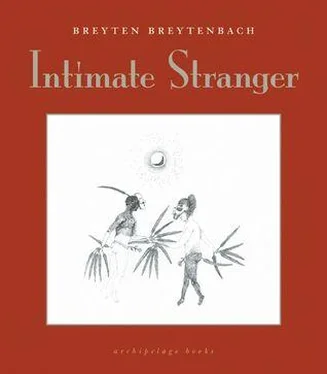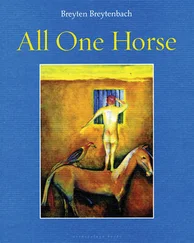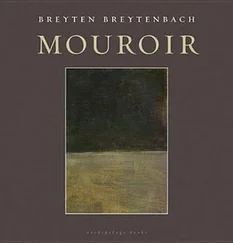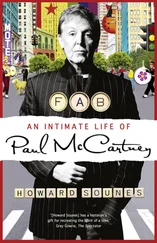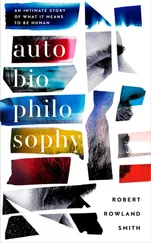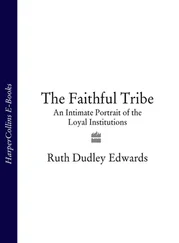Why do we do it? And why do we continue doing so, or have to do it over and over again? One knows there are many easier ways of drawing attention, of parading the self with its paradoxes and its pain. There are certainly more effective means of conveying information (though there seems to be ‘existential information’ embedded exclusively in the primordial need for making words). One also knows that the practice is not remunerative: given the effort and time consumed (for even at best one doesn’t produce more than two good pages a day) it is a singularly inept way for the human to make a living.
So then, why?
Ancient Chinese lore has it that writing evolved from magical signs, from runes and the ‘symbols’ or ‘depictions’ of the bones cast by diviners. It is said that on the day man started to codify the signs and their meanings by repeating them at will, and thus losing him / herself by beginning to trace the openings to the unknown, gods and demons wept because now there was no longer only Heaven and Earth. Man had manifested herself, interjected herself between reality and dream, and bared the cunt of creation. Now there was a go-between straddling the known and the unknowable and something autonomous (writing, conscious becoming) came into being with its own realness, if not ‘reality.’ A twin emerged. An intimate stranger.
Writing is a conscious attempt by the human to participate in his fate, that ‘story’ written from birth to death. Casting spells, exorcizing, whistling in the dark, inventing the textures and the structures of consciousness, keeping a backdoor open to memory, getting to know who and what we are, both reflecting what is and shaping the new. Memory is nothing but dead time, but death seeds the soil: from forgetting new shapes sprout. .
For writing is a means to transformation: using words and their interacting combinations — the meanings, the feel, the sounds and the shadows — to broaden our scope of apprehending and understanding ourselves and others, and in the process creating new spaces and references. Sometimes looking down into hell.
We will of course continue our discussions — looking at structure, point of view, voice, texture, etc. — always with our identical twin lode stars of ‘truth’ and ‘invention’ or ‘fact’ and ‘fiction’ in sight; we shall track the fictionalization of experience and the infactuation with story. How reality is invaginated by imagination, and thus seeded by understanding. Let the holy spirit do its duty. I suggested that it is inevitable for truth to be turned into fiction from the very moment that you start writing (or telling), that it is innate to the act of telling (perhaps even to language itself) to transform what is told — because of the techniques we use in order to fix consciousness: structure (selecting, discarding, shaping) and texture (using sounds and images and rhythms to convey emotions or thoughts), and these take on a life of their own. Perception of ‘pure facts’ linked to ‘instant recall’ gets slotted away in memory for later use (we do not write as is immediately), and there the material will be selected, discarded and shaped. Information and experience structure memory; memory structures experience and information. Only fiction can unveil reality.
In April 1966 Vladimir Nabokov stated to Alfred Appel: “I would say that imagination is a form of memory. . An image depends on the power of association, and association is supplied and prompted by memory. When we speak of a vivid individual recollection we are paying a compliment not to our capacity of retention but to Mnemosyne’s mysterious foresight in having stored up this or that element which creative imagination may use when combining it with later recollections and inventions. In this sense, both memory and imagination are a negation of time.”
A fact remembered will be a fact imagined, and the ‘imagined’ fact preserved and culled from a selective memory may well be as close as we will ever get to the rubble of truthfulness. In other words, it will be fiction. Nabokov: “Bare facts do not exist in a state of nature, for they are never really quite bare. I tend more and more to regard the objective existence of all events as a form of impure imagination. Whatever the mind grasps, it does so with the assistance of creative fancy.”
This holds for any passage from the observed to the expressed. The human mind, in its desperate quest for understanding and procreating survival (perhaps understanding is survival) will ‘order’ perceptions and information, highlight some and repress that which is not useful to the purpose or may be too disturbing. Memory is a source, not a neutral receptacle. To put it in the terms of another writer, R. Scholes: poïesis is not about mimesis, but on the contrary about “all writing, all composition, (being) construction. We do not imitate the world, we construct versions of it.”
From this inadequacy to reflect the totality of our experiences and thus from the choices we make in transmission, and from the fact that verbal communication (particularly in its written expression) is a structuring of versions of the world, arises what we may call ‘false consciousness’ — ‘false’ in that it is neither complete nor totally instinctive. But this is not the same as ‘bad faith,’ where we bamboozle and lie to ourselves and to others whilst earnestly believing we are in the true!
To the extent that we can show a mind working at full stretch (is the mind not a mirror to the universe?), and if we can empathize sufficiently with the characters and objects and situations depicted so that the story has both a directed fluidity and an autonomy outside the teller, we will bring about a truthfulness apparently as full-fledged (and fulsome!) as ‘reality.’ The more the story lives up to its own laws and realness, the more it will be (like) life. Charles Olson, the Black Mountain poet, claimed: “Art is the only twin life has.”
I have suggested already that fiction will become true in the relating. First of all, because every creation exists and therefore it constitutes a fact, even if only on paper available to a limited number of eyes. Too, because anything written will take on a given authority. The present war between different parts of the world is a conflict of texts — more precisely, the unquestioned value ascribed to the Word in some cultures where it is fanatically believed that altering the text will be like defacing God and spitting on his tongue — so that, as somebody remarked, “this war will be won by words.” And then in any case, because you have to ground fiction — factor in a life-like unfolding and logic true to the story, where voice and form sound right, making it resemble a plausible reality — to make it work .
One can therefore say that the act of telling, however sober and close to the facts, is a process of invention, but also that the very symbols and signs we use (language) root the telling in ‘reality.’ Language is (a) reality; each word corresponding to a concept or an action is a fact, and the bringing together of three words or more inevitably engenders fiction because of the relations established. Words talk to one another whether you want it or not; they tell stories. Hear them at night! Maybe it is due to the unstoppable fictionalization coming to mouth in the very act of telling, the process of self-invention, that some cultures prefer to leave their gods nameless.
It would seem to be a primary human instinct to want to be reassured /reminded that one is . Memory invisibly threads the substance of reassurance, suggesting that there is continuation and accumulation. Let’s reduce it to a simple equation: I was therefore I am . Furthermore: to the extent that I remember who and where I was, I can situate and recognize this “I.” And if I can recognize it, it must have autonomous existence. “That is me in the photo.” (It is interesting that there can be no recognition of “I” as essence except through being or doing — being is doing.) By remembering we shape and modify and imagine the memory, we bring about continuity. Perhaps we fill in the blanks. We need continuity to make sense of our existence and to have a purpose.
Читать дальше
